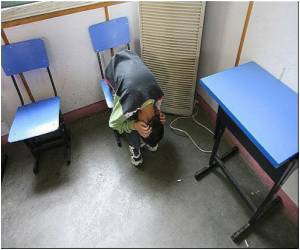Parents reveal that children and adolescents with autism spectrum disorders (ASDs) often face gastrointestinal (GI) symptoms, such as diarrhea and constipation.

The ATN enrolls patients ages 2-18 years with a diagnosis of autism, Asperger's syndrome or pervasive developmental disorder-not otherwise specified.
In the study, researchers wanted to find out how frequently parents of children enrolled in the network reported GI symptoms and what factors might be associated with these symptoms.
Families filled out a battery of questionnaires, including a GI symptom inventory tailored to the needs of nonverbal children, a behaviour checklist, sleep questionnaire and quality of life survey.
Data from 1,185 children showed that 45 percent had GI symptoms at the time of enrollment, with abdominal pain, constipation and diarrhea reported most commonly.
Reports of symptoms were more common in older children (39 percent of children under 5 years of age vs. 51 percent of children 7 and older).
Advertisement
No relationship was found between GI symptoms and type of autism, gender, race or IQ.
Advertisement
Results of the study will be presented at the Pediatric Academic Societies (PAS) annual meeting in Vancouver, British Columbia, Canada.
Source-ANI
RAS








